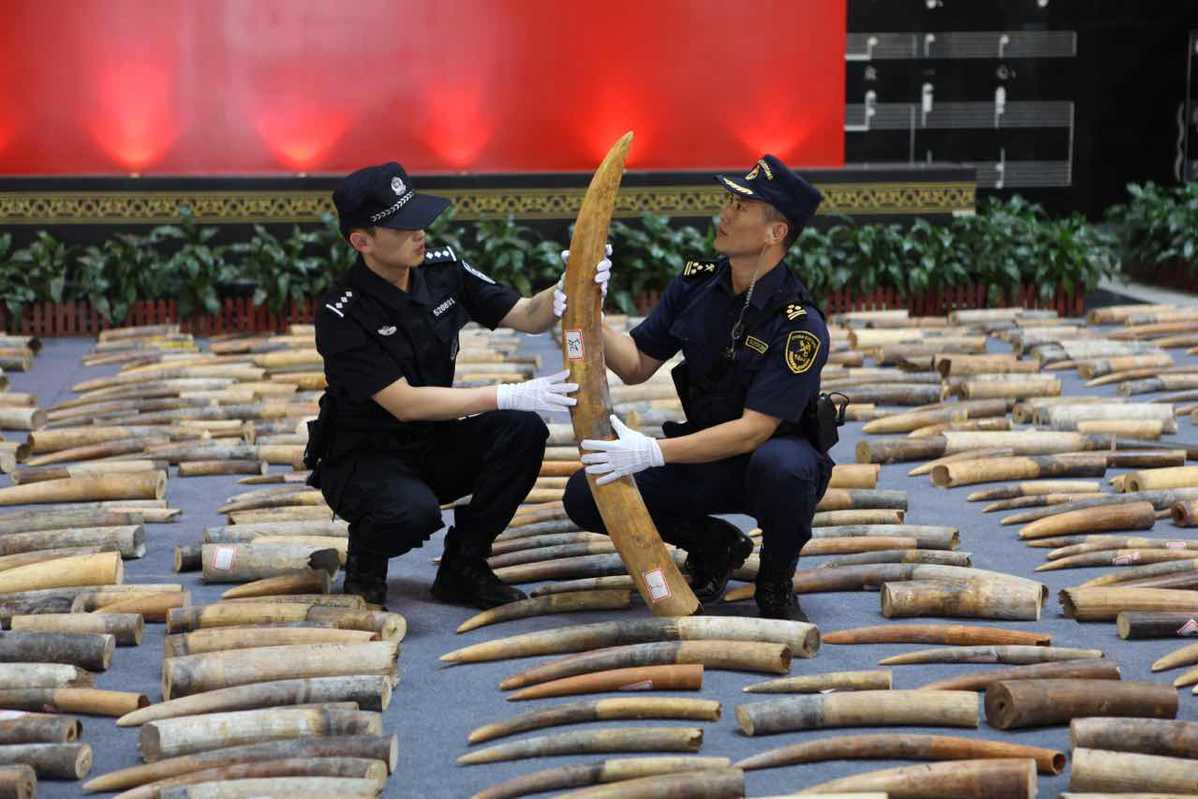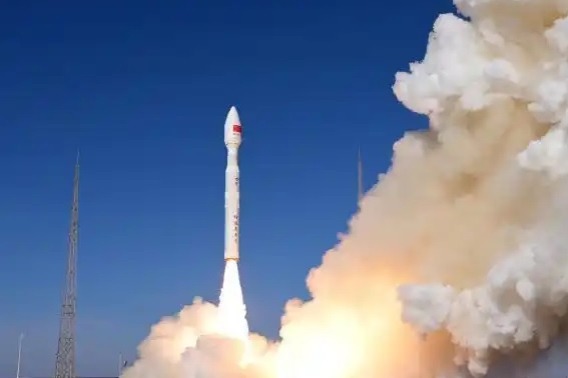China makes big strides in efforts to halt ivory trade






A major crackdown on ivory smuggling, in which China seized 2,748 elephant tusks weighing 7.48 metric tons in Guangdong province - one of its biggest hauls - has reconfirmed the country's commitment to global anti-smuggling operations.
General Administration of Customs officers at Huangpu Port in Guangdong confiscated the tusks, which ranged in length from nearly a meter to around 2 meters and covered 400 square meters of the customs building.
"The seized tusks were brought into China from African countries and were labeled as wood," said Sun Zhijie, director of the administration's anti-smuggling bureau.
Sun said the crackdown earlier this year culminated a three-month joint operation involving more than 200 customs officers in cities including Hefei, Nanjing, Beijing, Fuzhou and Qingdao. The investigation is ongoing, Sun added.
Sun said it was the greatest number of tusks seized by the customs authority through independent investigation.
From the beginning of the year through mid-April, China had solved 182 cases related to smuggling of endangered wild species - three times the number solved during the same period last year. More than 500 tons of wildlife and related products, including 8.48 tons of ivory, were seized.
Zhou Fei, chief program officer in China for the World Wide Fund for Nature, an organization that promotes wilderness preservation, said the nation has played a vital role in cracking down on wildlife-related smuggling.
"We congratulate China's customs authorities on their successful enforcement actions, which send a firm signal that trafficking of endangered species will not be tolerated," he said.
Elephant poaching has taken a heavy toll on Africa's natural resources. An estimated 100,000 elephants were killed on the continent for ivory between 2010 and 2012, according to a study by Save the Elephants, a UK-registered organization based in Kenya.
In 1981, China signed the Convention on the International Trade in Endangered Species of Wild Fauna and Flora. In 1989, the sale of ivory was banned worldwide after the African elephant population dropped to 600,000 from 1.2 million within a decade.
China banned the import and export of ivory tusks and related products in 1991. Penalties ranging from heavy fines to imprisonment and even capital punishment have been imposed for violations. In 2017, the government closed the ivory trade market.
"This decisive action has had a seismic effect on elephant conservation programs in Africa," said Najib Balala, Kenya's Cabinet secretary for tourism and wildlife. He said the country lost 38 elephants in 2018, compared with 68 the previous year.
- Fire in a residential building claims 12 lives in Guangdong
- International experts share innovative poverty solutions
- Guangdong to launch campaign to identify and rectify major fire hazards
- Vocational school dismisses official over voting scandal
- China sees steady growth in railway sector in 2025
- Chinese architect confirms economic feasibility of integrating tradition and modernity
































